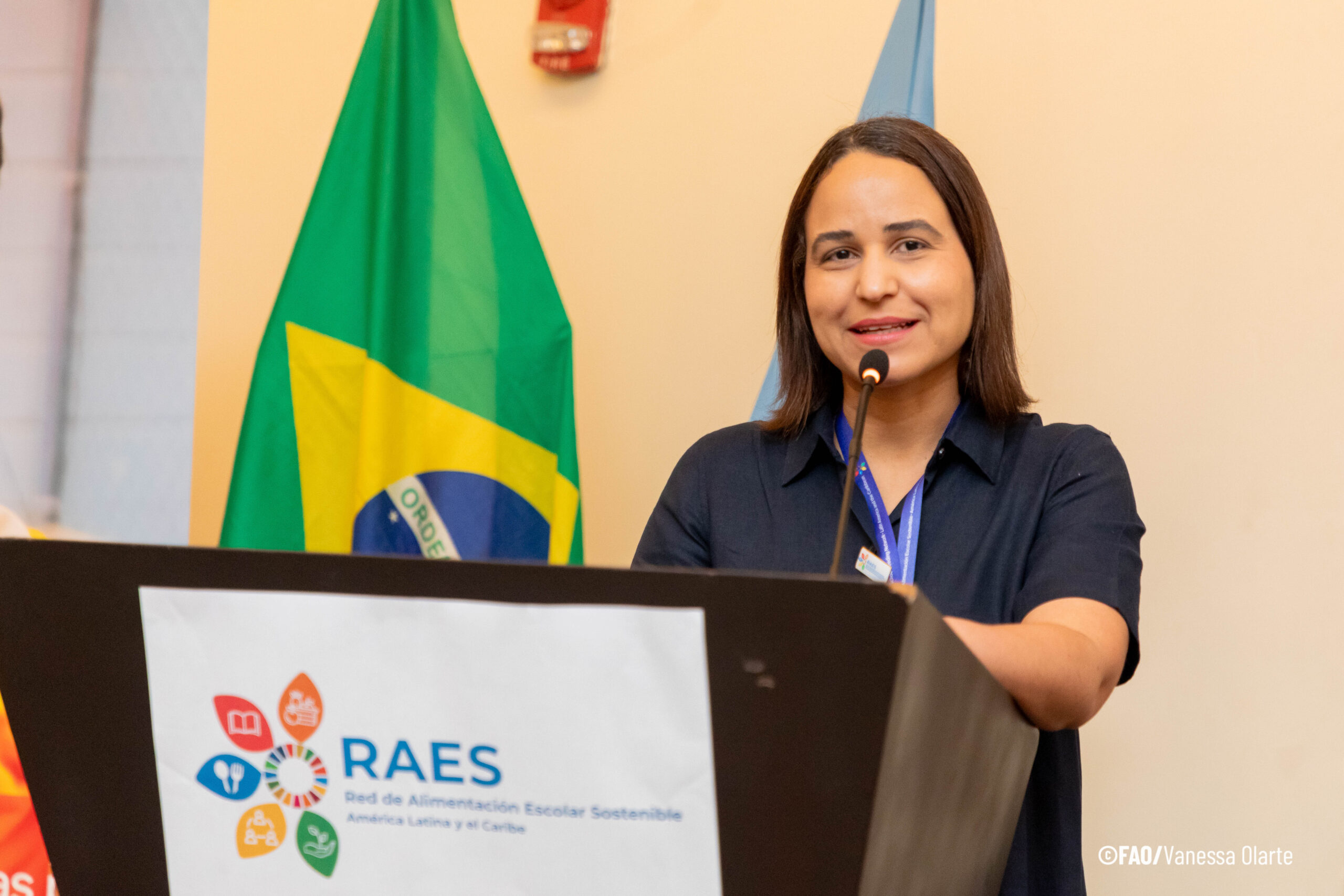See the testimony of a country representative.
Paulo Beraldo
What does being part of RAES mean for the countries of Latin America and the Caribbean? During the meeting in Panama that formalized the adhesion of countries to the Sustainable School Feeding Network (RAES), Yomaira Tejeda from the Dominican Republic gave an eloquent response to this question. The head of the Nutrition Department at the National Student Welfare Institute (INABIE) highlighted the value of this network as a space for mutual support and shared growth among countries.
“What does RAES mean to us? I think many will agree with me: RAES means having a home and a space. A place where we find a mother figure, where we can share our achievements as well as our failures. It allows us to be honest, to show our weaknesses, and to find support to keep moving forward and taking firm steps,” she said.
The testimony took place during the event RAES: Strengthening partnerships for sustainable school feeding for all, held on November 21–22, 2024, in Panama, which formalized the countries’ membership in the Network. Today, RAES includes the following formal members: Belize, Brazil, Bolivia, Chile, Colombia, Cuba, El Salvador, Ecuador, Honduras, Guatemala, Paraguay, Peru, Dominican Republic, Saint Lucia, Saint Kitts and Nevis, Suriname, and Uruguay.

In her remarks, Yomaira emphasized that RAES is both a technical workspace and a warm, close-knit community of 17 countries. “From my first contact with RAES in Brasília, I felt it was much more than a network. It is passion, innovation, and a space that inspires. Beyond the in-person meetings, RAES maintains constant dialogue,” she said, highlighting the development of country-specific work plans and concrete solutions to problems.
An example of tangible support
Yomaira provided an example from her country to illustrate how RAES contributes to school feeding programmes. In 2022, the Executive Director of INABIE, Victor Castro, participated in a RAES meeting in Brasília. During the event, participants visited several schools, tasted the meals offered to students, and engaged with various stakeholders, including managers, technicians, nutritionists, teachers, principals, secretaries, students, cooperatives, associations, and family farmers.
Upon returning to the Dominican Republic, a decision was made to remove nectar from school meals to reduce the availability of sugary foods—a measure with significant impact. “This is why I encourage RAES to continue involving major decision-makers and policymakers responsible for budget allocations, to support the technical aspects. This had a huge effect. We achieved this by walking alongside RAES and its team,” she concluded.







